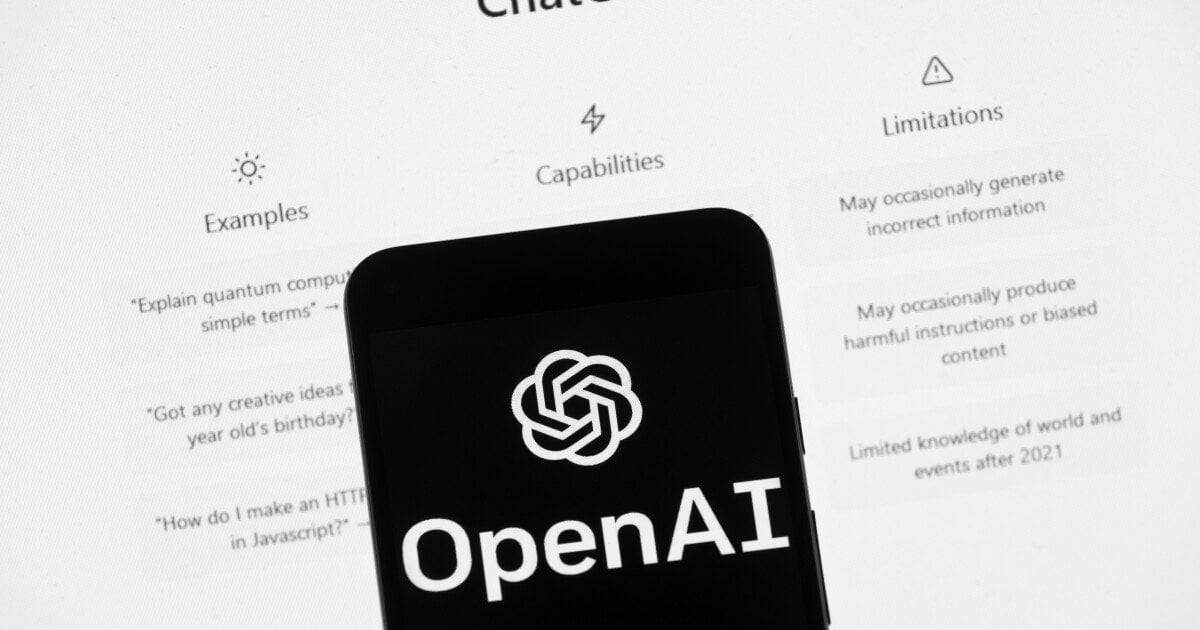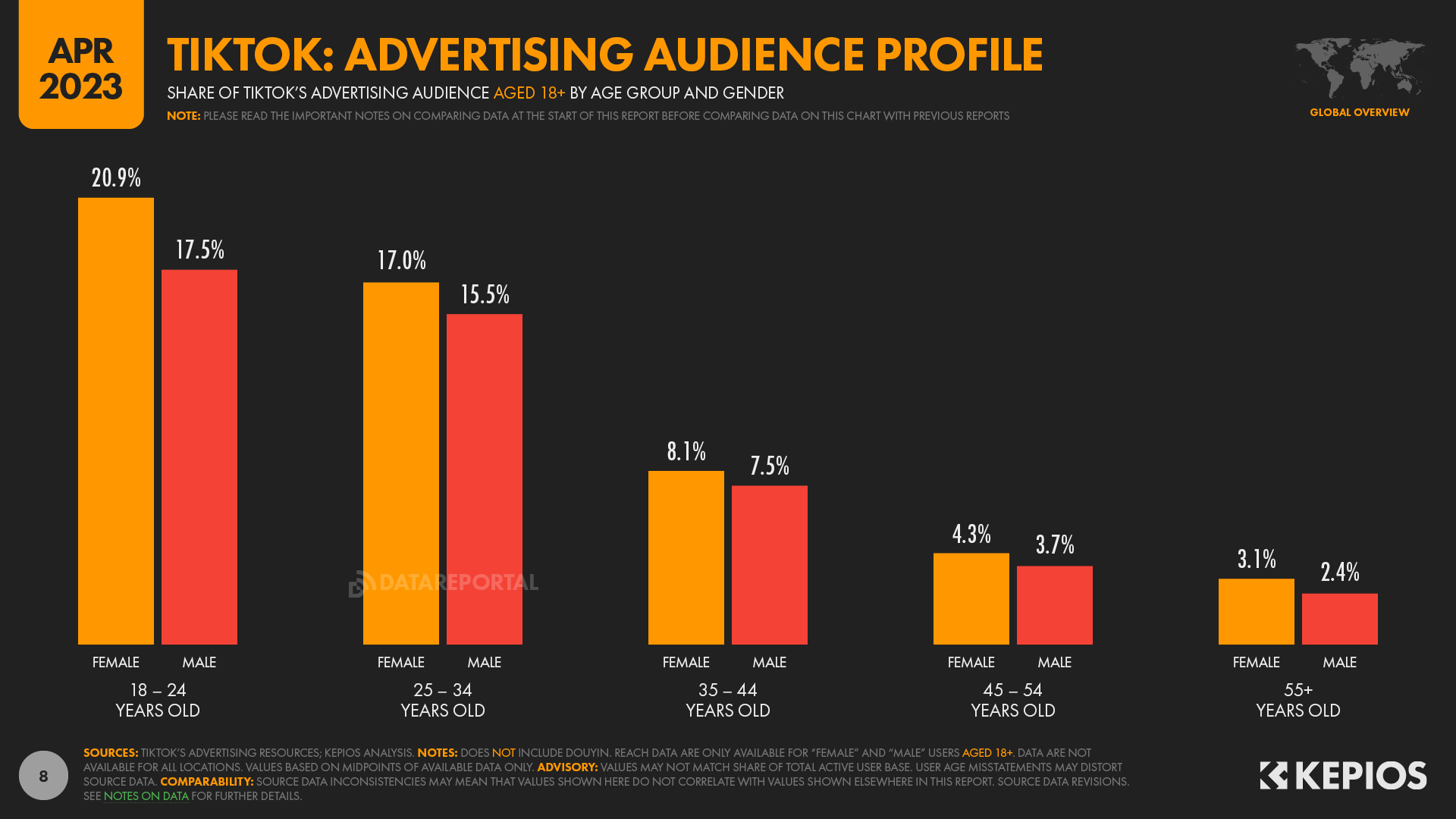FTC Investigates OpenAI's ChatGPT: What It Means For AI

Table of Contents
Understanding the FTC's Concerns Regarding ChatGPT
The FTC's investigation into OpenAI's ChatGPT stems from several key concerns related to the ethical and practical applications of this advanced language model.
Data Privacy and Security
The FTC is scrutinizing OpenAI's practices regarding the collection, use, and protection of user data employed in training ChatGPT. This is a critical concern given the vast amounts of personal information potentially used in creating such a sophisticated AI.
- Potential data privacy violations: Unauthorized data collection, inadequate data security measures leading to data breaches, failure to obtain informed consent for data usage.
- The role of consent in data collection: Whether OpenAI obtained truly informed consent from users regarding the use of their data for training purposes, especially considering the sensitivity of the information often included in prompts.
- Implications of GDPR and CCPA: Compliance with the General Data Protection Regulation (GDPR) and the California Consumer Privacy Act (CCPA), which place stringent requirements on how personal data is handled.
The sensitive nature of data used in training large language models is undeniable. From personal conversations to sensitive professional information, the potential for misuse and subsequent harm is significant. Robust data protection measures are paramount to maintaining user trust and adhering to legal standards.
Algorithmic Bias and Fairness
Another significant area of concern for the FTC is the potential for bias in ChatGPT's outputs. The algorithms underpinning AI models learn from the data they are trained on, and if that data reflects existing societal biases, the AI will likely perpetuate and even amplify those biases.
- Examples of potential biases: Gender bias in occupation suggestions, racial bias in sentiment analysis, stereotypical portrayals in generated text.
- The challenges of mitigating bias in AI: Identifying and removing biases from massive datasets, developing algorithms that are inherently fair and equitable, ensuring diverse representation in training data.
- The importance of diverse datasets: Using representative datasets that encompass a broad spectrum of perspectives and experiences is essential for mitigating bias.
Biased algorithms can lead to discriminatory outcomes, perpetuating harmful stereotypes and unfairly disadvantaging certain groups. Addressing this issue requires a multifaceted approach that considers both the data used and the algorithms themselves.
Misinformation and Misuse
The ability of ChatGPT to generate human-quality text raises significant concerns about its potential for misuse in generating and disseminating misinformation.
- Examples of malicious use: Creating convincing fake news articles, generating deceptive marketing materials, spreading propaganda and hate speech.
- The challenge of detecting AI-generated content: Differentiating between human-written and AI-generated text is becoming increasingly difficult, making the detection and mitigation of misinformation more challenging.
- The role of fact-checking and responsible AI development: Implementing rigorous fact-checking mechanisms and promoting responsible AI development practices are crucial in mitigating the risks associated with misinformation.
The ethical implications of AI-generated content are substantial. The ease with which misleading or harmful information can be created demands a concerted effort towards responsible AI practices, including rigorous testing and ongoing monitoring of AI systems for potential misuse.
Potential Impacts of the FTC Investigation on OpenAI and the AI Industry
The FTC's investigation into OpenAI's ChatGPT will likely have far-reaching consequences for OpenAI, the broader AI industry, and consumers.
Regulatory Scrutiny of AI Development
The investigation signals a growing trend of increased regulatory scrutiny of AI technologies.
- Increased regulatory oversight: We can anticipate stricter regulations and guidelines governing the development and deployment of AI systems.
- Potential for new laws and regulations: The investigation may lead to the creation of new legislation specifically addressing the ethical and societal implications of AI.
- The impact on AI innovation: While regulation is necessary, it’s crucial to find a balance that encourages innovation while mitigating risks.
The future of AI development will likely involve navigating a more complex regulatory landscape, demanding greater transparency and accountability from AI developers.
Changes in AI Development Practices
The FTC's investigation is likely to spur significant changes in OpenAI's development practices and potentially influence those of other AI companies.
- Enhanced data privacy measures: OpenAI and other companies may adopt more stringent data privacy protocols and enhance data security measures.
- Improved bias mitigation techniques: Companies will likely invest more heavily in developing and implementing effective bias mitigation techniques in their AI models.
- Increased transparency in AI models: There will be a greater emphasis on transparency in how AI models are trained, the data they use, and their potential limitations.
The investigation will likely accelerate the adoption of best practices across the industry, leading to more robust and responsible AI development.
Consumer Impact and Trust in AI
The FTC investigation will impact consumer trust and confidence in AI technologies.
- Increased awareness of AI risks: The investigation will likely raise public awareness about the potential risks associated with AI, including data privacy violations and algorithmic bias.
- The importance of transparency and accountability: Consumers will increasingly demand greater transparency and accountability from AI companies.
- The need for consumer education: Educating consumers about the capabilities and limitations of AI is critical for fostering informed decision-making and responsible use.
Building and maintaining consumer trust will be a key challenge for AI companies in the years to come, requiring a commitment to transparency, ethical practices, and robust safeguards.
Conclusion: The Future of AI in the Shadow of the FTC Investigation
The FTC's investigation into OpenAI's ChatGPT highlights significant concerns about data privacy, algorithmic bias, and the potential for misinformation. The implications are far-reaching, impacting not only OpenAI but also the broader AI industry and consumer trust. The investigation underscores the urgent need for responsible AI development, stringent regulations, and increased transparency. To stay informed, follow developments in the FTC's investigation of OpenAI's ChatGPT, stay updated on AI regulations, and learn more about responsible AI development. For further information, visit the FTC website [link to FTC website] and OpenAI's website [link to OpenAI website]. The future of AI hinges on our collective ability to address these challenges responsibly and ethically.

Featured Posts
-
 Open Ai Under Ftc Scrutiny Chat Gpts Future In Question
Apr 22, 2025
Open Ai Under Ftc Scrutiny Chat Gpts Future In Question
Apr 22, 2025 -
 Pope Franciss Papacy Its Influence On The Next Papal Election
Apr 22, 2025
Pope Franciss Papacy Its Influence On The Next Papal Election
Apr 22, 2025 -
 Cassidy Hutchinsons January 6th Memoir What To Expect This Fall
Apr 22, 2025
Cassidy Hutchinsons January 6th Memoir What To Expect This Fall
Apr 22, 2025 -
 How Tik Tok Users Are Bypassing Tariffs The Just Contact Us Method
Apr 22, 2025
How Tik Tok Users Are Bypassing Tariffs The Just Contact Us Method
Apr 22, 2025 -
 Tik Tok And Tariffs Examining The Just Contact Us Trend
Apr 22, 2025
Tik Tok And Tariffs Examining The Just Contact Us Trend
Apr 22, 2025
